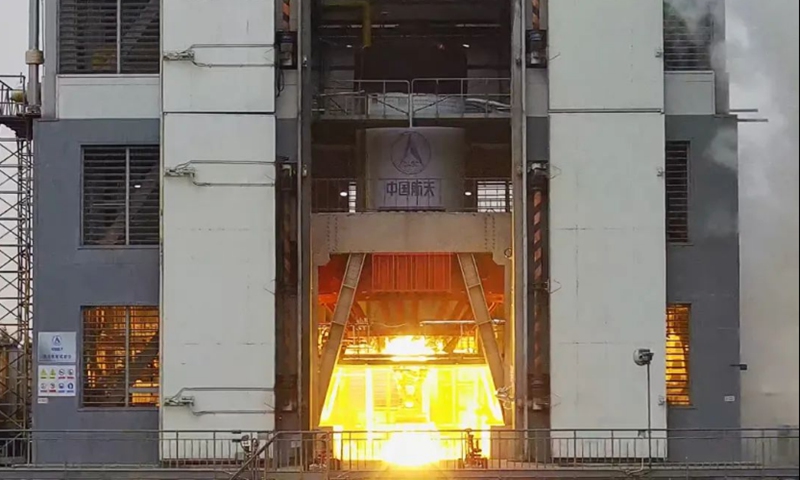 The view of the Yangtze River Bridge in Southwest China's Chongqing. Photo: VCG
The view of the Yangtze River Bridge in Southwest China's Chongqing. Photo: VCGIn 2013, American venture capitalist Aileen Lee coined the term "unicorn" to describe tech startups valued at over $1 billion that are not listed on a share market, drawing inspiration from the mythical creature known for its rarity and value. While unicorn enterprises are no longer as scarce as they were a decade ago, they continue to represent highly innovative and fast-growing companies, widely regarded as key indicators of the latest technological revolutions and industrial transformations. Compared to the 369 unicorn enterprises listed in last year's report, the number and geographical distribution of Chinese unicorns have further expanded this year. Additionally, according to another report released last year, from 2016 to 2023, the number of unicorn enterprise sectors in China increased from 22 to 39, shifting from a focus on business model innovation to one increasingly driven by technological advancements. Unicorn enterprises are playing an increasingly prominent role in China's economic transformation and upgrading.
With breakthroughs in cutting-edge technologies such as artificial intelligence (AI), quantum computing and biotechnology, China's innovative tech enterprises undoubtedly are set to play an increasingly significant role in the global unicorn enterprise landscape. The deep integration of the digital and real economies, the construction of an innovation ecosystem, and the deepening of capital market reforms will all help more startups with disruptive innovation capabilities to quickly grow into unicorn enterprises.
Moreover, what is becoming increasingly evident to the world is the value of China as a fertile ground for the growth of innovative technology enterprises. From the national level to local governments, a multi-tiered and comprehensive support system enables these enterprises to face market competition and unknown territories with greater confidence, allowing them to continuously catch up with and even lead the forefront of the world.
China's development approach, which focuses on handling its own affairs well, fundamentally ensures that the country's technological innovation remains a process of continuous self-breakthrough. Take unicorn enterprises as an example: The meeting of the Political Bureau of the CPC Central Committee last July called for strong and effective support for gazelle companies and unicorn firms and this year's two sessions reaffirmed this commitment, from which people see the momentum for development in China that demands urgent actions to seize every opportunity. While trade wars, regional conflicts, and climate disasters continue to challenge the international community, China has remained steadfast in its direction and is forging ahead on its chosen path.
China, with its massive market of over 1.4 billion people, has seen its tech companies innovate through competition, transforming people's lifestyles and, to some extent, redefining the era. Today, China's mobile payment, e-commerce, and sharing economy models have been widely studied in regions such as Southeast Asia, Africa, and Latin America. Breakthroughs in fields like 5G, AI, and biomedicine are also providing new options for optimizing global supply chains and improving healthcare. When China's convenient, efficient, and low-cost lifestyle leaves a deep impression on foreign vloggers visiting the country, and when DeepSeek amazes the world with the new opportunities brought by AI, people believe that this is far from the endpoint of "Made in China" reshaping global imagination.
There is a viewpoint that 2025 could be the year when Chinese tech firms stun the world. In fact, this serves as yet another higher starting point for the idea that "investing in China is investing in the future." Data shows that in the past five years, the return rate of foreign direct investment in China is around 9 percent, which is at relatively high level in the world. Additionally, China is actively addressing the issues faced by foreign enterprises operating within the country and is willing to share vast development opportunities. Looking back, there is a solid foundation for cooperation; looking forward, there are positive expectations for development. Oliver Zipse, chairman of the board of management of BMW Group, stated that as long as the spirit of cooperation is upheld, new growth potential will be unleashed, which reflects the common sentiment of both Chinese and foreign enterprises in the face of opportunities.
The way a country views technological development and competition often reveals its aspirations and character. From substantial investments of international capital to widespread enthusiasm for the global sharing of technological achievements, it is clear that open cooperation is a common desire among the people and a prevailing trend of the times. China will continue to demonstrate through action that technological innovation will further flourish in this vibrant land, as it not only has a vast market, strong policy support, and a dynamic talent ecosystem, but also a steadfast commitment to pursuing development in collaboration with the world.
Related posts:
China’s private companies reaching for the stars
The China Aerospace Science and Technology Corporation (CASC) announced on Tuesday that its commercial rocket subsidiary has successfully completed the second-stage propulsion system test for a reusable launch vehicle. This marks a significant breakthrough in reusable engine technology for China's commercial space sector.
By Global Times | 2025/3/19 10:33:59






